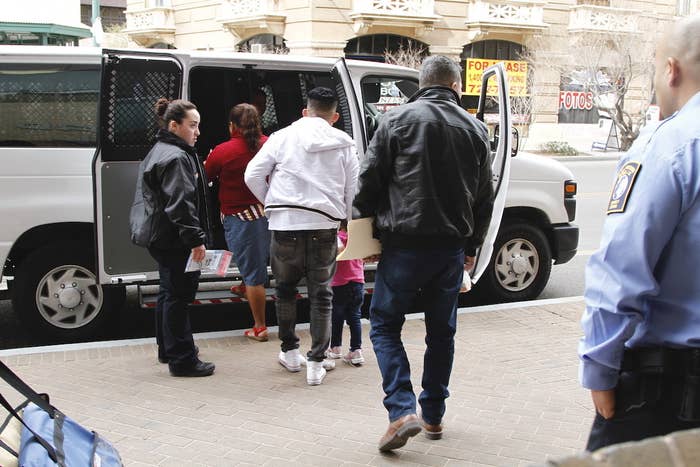
The journalists at BuzzFeed News are proud to bring you trustworthy and relevant reporting about the coronavirus. To help keep this news free, become a member and sign up for our newsletter, Outbreak Today.
Immigration judges in San Diego overseeing cases of asylum-seekers forced to remain in Mexico for the duration of their proceedings have begun postponing cases in an effort to prevent the spread of the coronavirus, according to an order obtained by BuzzFeed News.
“Out of duty to ensure the protection and well-being of the respondents, their representatives, the officers at the port of entry obliged to escort the respondents, the building personnel, counsel for the Department of Homeland Security, and court staff, the Court reschedules the cases to April 30, 2020,” an order directed to those in the program states.
Judges plan to issue similar orders on a daily basis, according to a source with knowledge of the matter. Delays were also reported in El Paso, the location of another court that hears similar cases.
The postponed cases appear to be the latest sign of immigration judges pushing back against the Department of Justice, which runs the immigration courts. The union that represents the judges has repeatedly called for all of the immigration courts to close to prevent the spread of the disease caused by the coronavirus, COVID-19.
So far, while the agency has closed some immigration courts and delayed other hearings, it hasn’t agreed to do a full-scale shutdown.
“It is out of desperate frustration with the agency’s complete lack of connection to the reality on the ground,” said Ashley Tabaddor, an immigration judge who heads the union, the National Association of Immigration Judges, which represents around 350 judges. “They are taking matters into their own hands to protect the health of themselves and everyone else.”
The Department of Justice did not immediately respond to a request for comment.
The policy has sent roughly 60,000 asylum-seekers to Mexico as they await the outcome of their immigration proceedings in the US. The policy, which took effect in early 2019, has been a pillar of the Trump administration’s approach to not only restrict asylum access but deter those seeking protection from coming to the border.
In the meantime, immigrant advocates have reported cases of kidnapping, rape, torture, and other violent attacks against those forced to wait in Mexico.
“I think it is too late to spread of COVID-19 because they held MPP court, exposed migrants to potential community spread and sent them back to Mexico, I believe it is very likely it is too late to prevent the spread here,” said Erika Pinheiro, litigation director of Al Otro Lado, an advocacy organization.
The decision to implement the Migration Protection Protocols (MPP) in early 2019 came amid a surge of families crossing the border and claiming asylum. In the early days of the policy, the administration was seeing upward of 100,000 border crossings a month. In recent months, those numbers have dropped precipitously.
Late last year, BuzzFeed News obtained a draft report from a team of senior Department of Homeland Security officials who examined the policy and found that US border officials apparently pressured United States Citizenship and Immigration Services (USCIS) officials to deny immigrants entry.
On Friday, lead officials at the New York City Department of Health and Mental Hygiene, along with the mayor’s Office of Immigrant Affairs, sent a letter to the Department of Justice imploring them to immediately close an immigration court in the city.
“We have been deeply concerned for the health and safety New York City Immigration Judges and Court personnel, for the immigrant community in New York City and the attorneys and advocates serving them, and for the public at large,” wrote commissioners Oxiris Barbot and Bitta Mostofi in a letter to Attorney General William Barr.
“At the detained court, where hearings continue, judges and attorneys have reported that waiting rooms continue to be filled with people, that there is inconsistent cleaning, and that insufficient measures are being taken to protect all parties,” they wrote.
